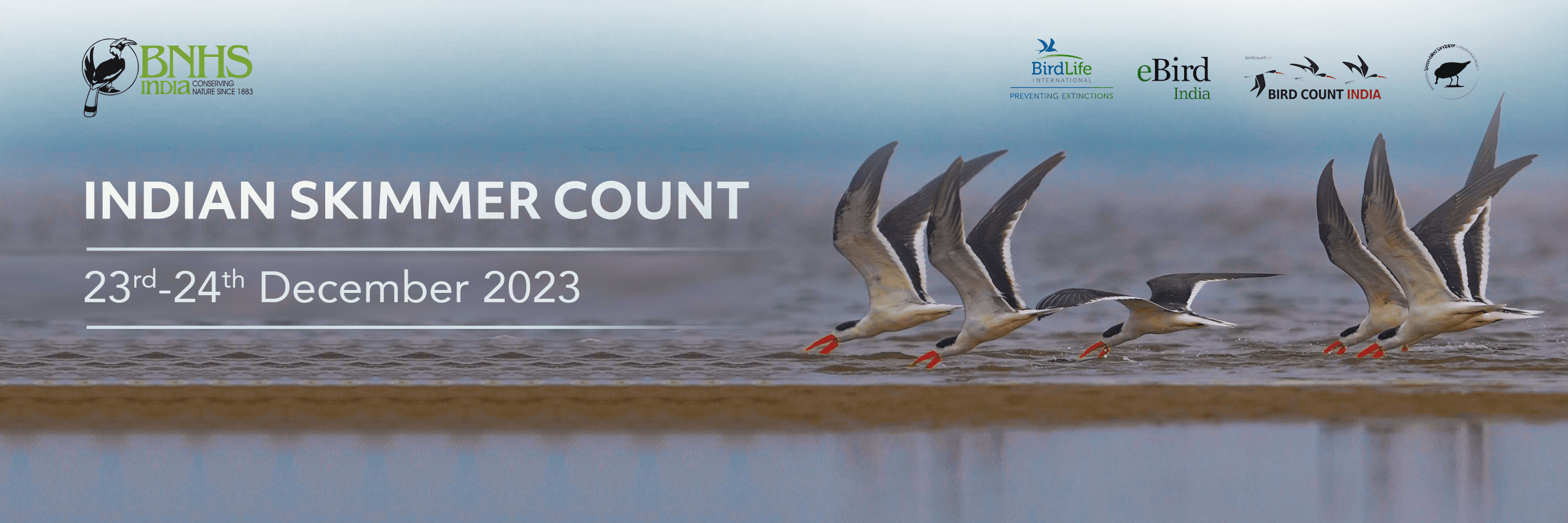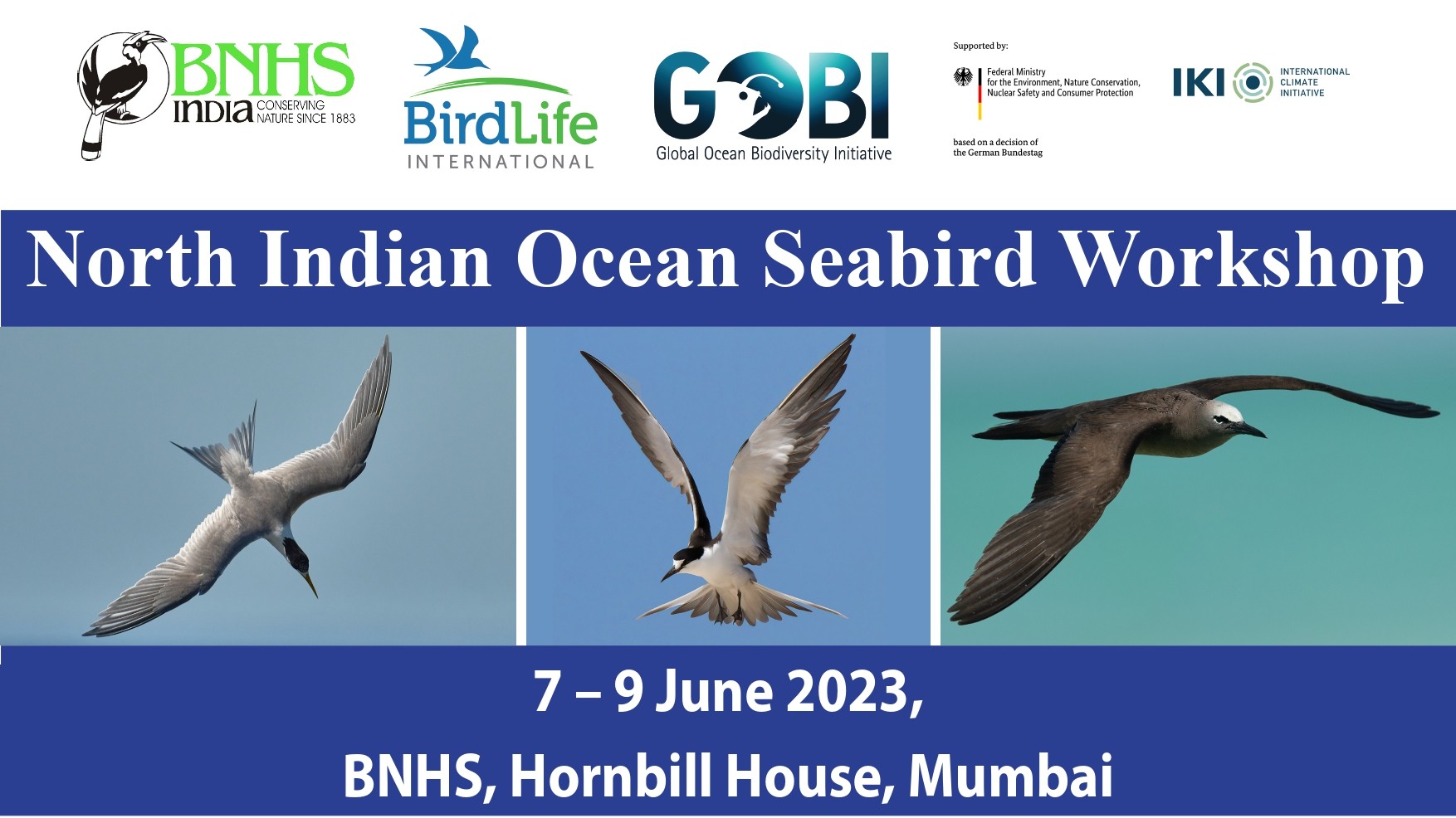NORTH INDIAN OCEAN SEABIRD WORKSHOP
NORTH INDIAN OCEAN SEABIRD WORKSHOP
Collectively documenting important areas and seabird movements
BNHS, Hornbill House, Mumbai
7th - 9th June 2023
Background:
Seabirds are impacted by human activities when they breed on land and while they forage at sea, as a result many species have undergone dramatic population declines and they are now one of the most threatened groups of birds. As higher predators, seabirds play key roles in marine ecosystems making their conservation critical. They are also excellent environmental indicators because they are more accessible than many other marine taxa and can provide insights into ecosystem processes at various trophic levels. Understanding seabird movements and change is important for environmental monitoring and can inform conservation action.
Two Large Marine Ecosystems of the North Indian Ocean – the Arabian Sea and Bay of Bengal – are highly productive but undergoing rapid environmental and climatic change. These waters are also comparatively poorly studied despite the range of cumulative impacts. Although this region has a comparatively low number of seabird numbers and breeding colonies, it is important for migratory seabirds with movements connecting coastal and pelagic ecosystems to ocean basins, but currently the available data are varied and disparate.
This workshop aims to bring together the available data to document major movement patterns by seabirds to complement the existing marine Important Bird and Biodiversity (IBA) network and to discuss current and future threats, and research needs. This workshop is intended to be useful for policy and decision making relating to seabirds and marine conservation through highlighting important areas and connectivity, as well as identifying major threats to guide future management and research needs. The workshop outputs are intended to be useful for current policy discussions relating to the Kunming-Montreal Global Biodiversity Framework, particularly relating to Target 3 that includes the aim of effective conservation and management of at least 30% of the world’s oceans, and prioritises areas of particular importance for biodiversity, within a system of well - connected areas.
Expected outputs from this workshop are: 1) overview maps of seabird movement within national waters; 2) identification of major threats to seabirds within national waters; 3) identification of research gaps to inform conservation action. These outputs could also lead to a paper describing the known locations, and migratory movements of seabirds in the waters of India, Sri Lanka, and adjacent high seas

